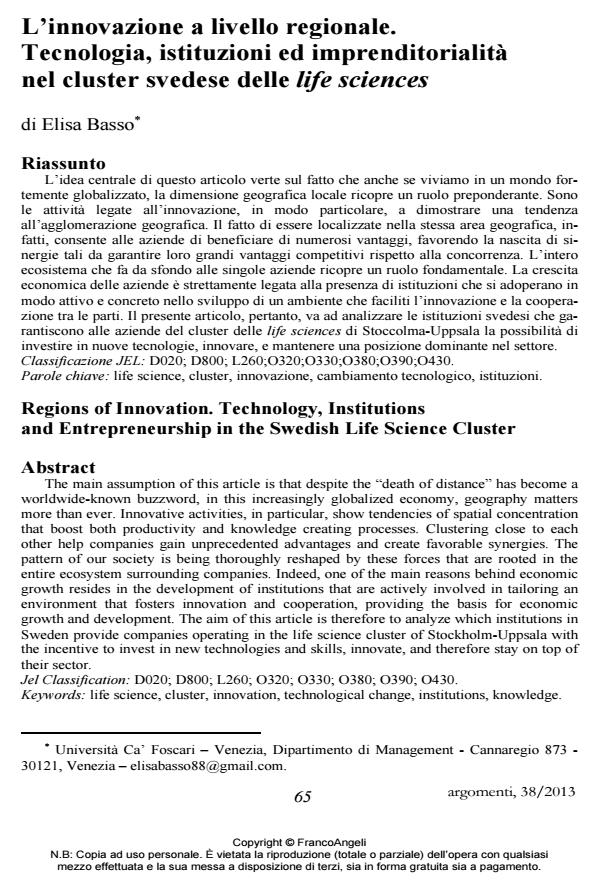Regions of Innovation. Technology, Institutions and Entrepreneurship in the Swedish Life Science Cluster
Journal title ARGOMENTI
Author/s Elisa Basso
Publishing Year 2013 Issue 2013/38
Language Italian Pages 18 P. 65-82 File size 1069 KB
DOI 10.3280/ARG2013-038004
DOI is like a bar code for intellectual property: to have more infomation
click here
Below, you can see the article first page
If you want to buy this article in PDF format, you can do it, following the instructions to buy download credits

FrancoAngeli is member of Publishers International Linking Association, Inc (PILA), a not-for-profit association which run the CrossRef service enabling links to and from online scholarly content.
The main assumption of this article is that despite the "death of distance" has become a worldwide-known buzzword, in this increasingly globalized economy, geography matters more than ever. Innovative activities, in particular, show tendencies of spatial concentration that boost both productivity and knowledge creating processes. Clustering close to each other help companies gain unprecedented advantages and create favorable synergies. The pattern of our society is being thoroughly reshaped by these forces that are rooted in the entire ecosystem surrounding companies. Indeed, one of the main reasons behind economic growth resides in the development of institutions that are actively involved in tailoring an environment that fosters innovation and cooperation, providing the basis for economic growth and development. The aim of this article is therefore to analyze which institutions in Sweden provide companies operating in the life science cluster of Stockholm-Uppsala with the incentive to invest in new technologies and skills, innovate, and therefore stay on top of their sector.
Keywords: Life science, cluster, innovation, technological change, institutions, knowledge.
Jel codes: D020; D800; L260;O320;O330;O380;O390;O430
Elisa Basso, L’innovazione a livello regionale. Tecnologia, istituzioni ed imprenditorialità nel cluster svedese delle life sciences in "ARGOMENTI" 38/2013, pp 65-82, DOI: 10.3280/ARG2013-038004